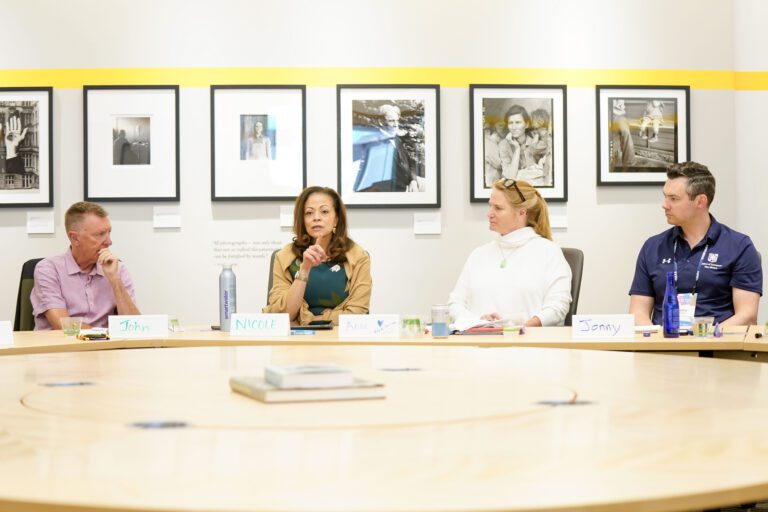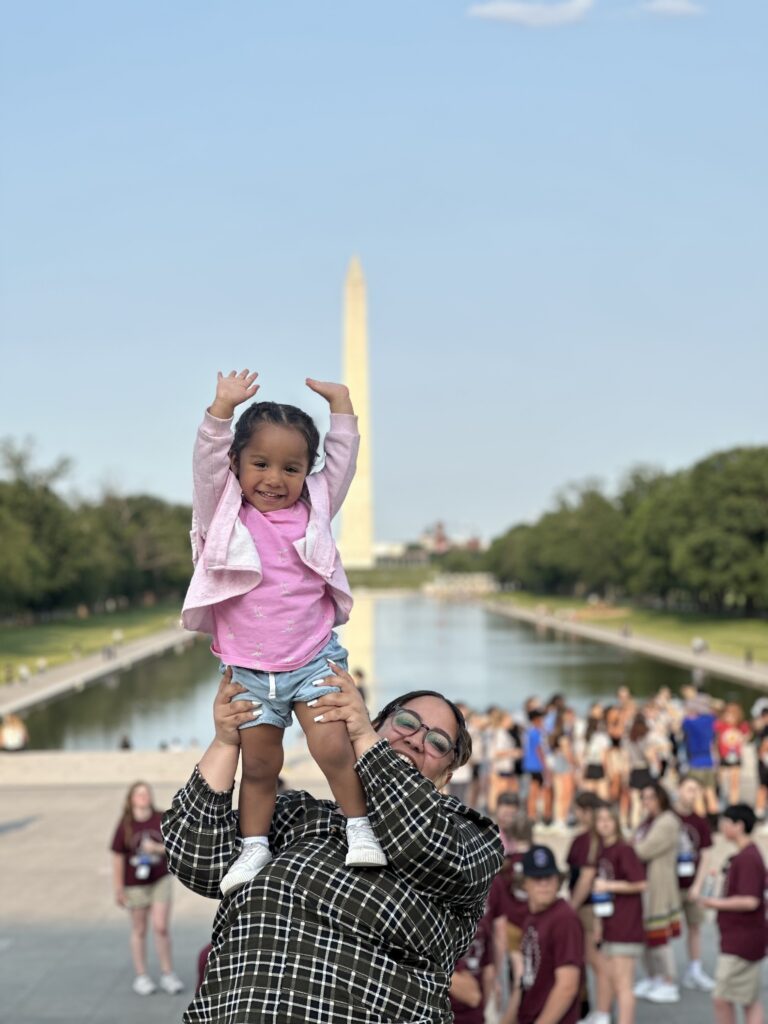Me and My Posse
Lessons and Innovations from the 2Gen Field
We, as people navigating life, intuitively recognize the value of social capital in helping us reach our goals, personal and professional. The network of people and institutions that we rely on is instrumental on a daily basis, especially in helping us get through tough and transitional times, such as a sudden lapse in health or a career leap. How can we work to ensure that the families we work with benefit from these vital and caring networks of support?
Building peer cohorts into programming is an effective way of doing so. Leaders running two-generation (2Gen) programs often use cohort models to build upon the resilience of families and provide families with a running start on achieving their goals. But how do you actually build a successful cohort, and what are the aims of doing so? What do successful cohorts accomplish for families, and how can program leaders help participants cultivate strong, mutually beneficial relationships?
“They came into college thinking they were alone,” says Brian Pellinen, associate dean of professional studies at Endicott College Boston. “Then they realize, 'I’m not alone in this.'” Pellinen works on the Jeremiah-Endicott Partnership Program, a 2Gen program that links low-income female student parents and their children with career-track higher education and high-quality early childhood education, as well as life skills and empowerment training, high-touch coaching, and access to other support services in the local community. The program targets first generation college students, English language learners, recent immigrants, and graduates of Boston public schools.
Pellinen demonstrates the need for intensively supportive environments for low-income mothers from these populations who attend the college: “Community college is awesome, but it doesn’t work for everyone. They have a 55 percent retention rate nationally, less for these groups.” The Jeremiah-Endicott program provides an alternative learning approach for young mothers. After the first year of the program, data showed an 87 percent first-year retention rate. Pellinen credits much of this success to the program's cohort approach. “Automatically by putting them in a group, there are already these social bonds that begin to set in place,” he says. “They begin to help themselves.” In addition to regular coaching and life skills training, cohort members take one class together per semester and attend monthly family events and outings, in which students bring their children and other family members to participate in a fun activity. “Research shows it is best to minimize that school-family divide for first generation students,” says Pellinen. “We invite the children and other family members to help them believe this is part of their experience as well.”
The Jeremiah-Boston Partnership Program's strategy is based on two leading 2Gen programs, both run by Ascend Fellows, Keys to Degrees at Endicott College and Jeremiah Program. Headquartered in Minneapolis, MN and led by Ascend Fellow Gloria Perez, Jeremiah Program serves as a model for two-generation programs nationwide. This residential program targets moms who have a GED or a high school diploma and want to get a college degree. Participants may enroll in different colleges but still have a lot in common. As Perez says, “All of the mothers start with same experience – single moms, young children, same vision to go to college. All motivated by their children.” At Jeremiah, the glue that holds the cohort together and creates the foundation for success is empowerment training. This is a 32-hour training program that helps the women understand how their thoughts and behaviors impact where they are in the world. Its method is centered in cognitive restructuring and the work of Dr. Steven Stosny. Participants in the Jeremiah-Endicott Partnership Program get this same training as well, also taught by Jeremiah Program-trained empowerment teachers.
“This experience builds the cohort strongly,” says Perez.” As a group, the participants come together to reflect on what are the thoughts and beliefs they have held onto forever. In empowerment, we go back to our belief systems…That 32-hour experience is formative in terms of building relationships.” According to Perez, in the midst of all of the accolades, joys, and victories of graduation, participants most often focus on one thing, saying: “Thank you for believing me and giving me this supportive community of people I can trust.” It is clear that at Jeremiah Program, success all boils down to positive, supportive relationships. “Women would say, 'I feel so isolated…there’s nobody out there to really help me.” Jeremiah has changed that for so many women, helping them to develop the community and courage they need to achieve their dreams.
Cohorts can be structured in a variety of ways – the key factor is a shared experience for the participants. At Jeremiah Program, the shared experience is living in the same place, with group cohesion accelerated by empowerment training. At Jeremiah-Endicott, the shared experience is the shared campus and training space. For a third program, CareerAdvance at CAP Tulsa, the grounding place is the shared classroom in a career-focused education program. Participants in CareerAdvance are enrolled in closed course blocks that are purchased by CAP Tulsa from a local college and a technical school. Participants are placed into different cohorts based on their interests, geographic location, and academic readiness, and develop supportive relationships with their cohort members through taking courses together and through regular peer partner meetings, which are led by a career coach. Monica Barczak, director of CAP Tulsa's Innovation Lab, says that these partner meetings are “very valuable for relationship building, time for self-reflection and sharing, career readiness preparation, including guest speakers or interactive sessions, field trips, administration functions such as problem solving and paperwork, sharing information, and mindfulness activities.” CareerAdvance staff aim to keep the cohorts together throughout the students' entire educational paths, though this becomes difficult as needs change.
Cohorts truly provide a boost for students, helping them feel better connected, valued, and capable. But these effects only last for so long, according to Barczak. Cohorts are not as valuable as time goes on. “What they want changes as time goes on,” she says. “It becomes ‘What is going to be expected from me when I am seeking employment?’ The excitement and encouragement that initially comes from the group wears down, as students become more confident in their abilities and develop deeper relationships with core friends, who often live close to each other. Naturally, the key student relationships end up being about what educational track students are on, rather than who they started out with. Another challenge that can arise with cohorts is the possibility of competition. Barczak shared how, due to limited spots in classes for certain career tracks, trust-building among classmates can be stunted. This is something to consider when deciding how to structure a cohort. The start of a program is a critical time to help students approach each other in a healthy way and come to understand how they can support each other.
Cohorts can be a powerful springboard to help student parents have a strong start to their educational and career pursuits. In the diversity of possible approaches, it is clear that powerful, reflective, and often emotional experiences provide a great glue to stick cohorts together. This “glue” will continue to support students throughout their educational experience, until the point that they feel they possess the tools needed to navigate their paths successfully.
Speakers in the 2015 Aspen ThinkXChange session on cohorts included:
- Monica Barczak, Senior Advisor, Office of Community Services & Office of Family Assistance, Administration for Children and Families, and Director, Innovation Lab at CAP Tulsa;
- Gloria Perez, President and CEO, Jeremiah Program;
- Brian Pellinen, Associate Dean of Professional Studies, Endicott College Boston
See others in the series:
Learn more about the 2015 Aspen ThinkXChange
Related Posts



